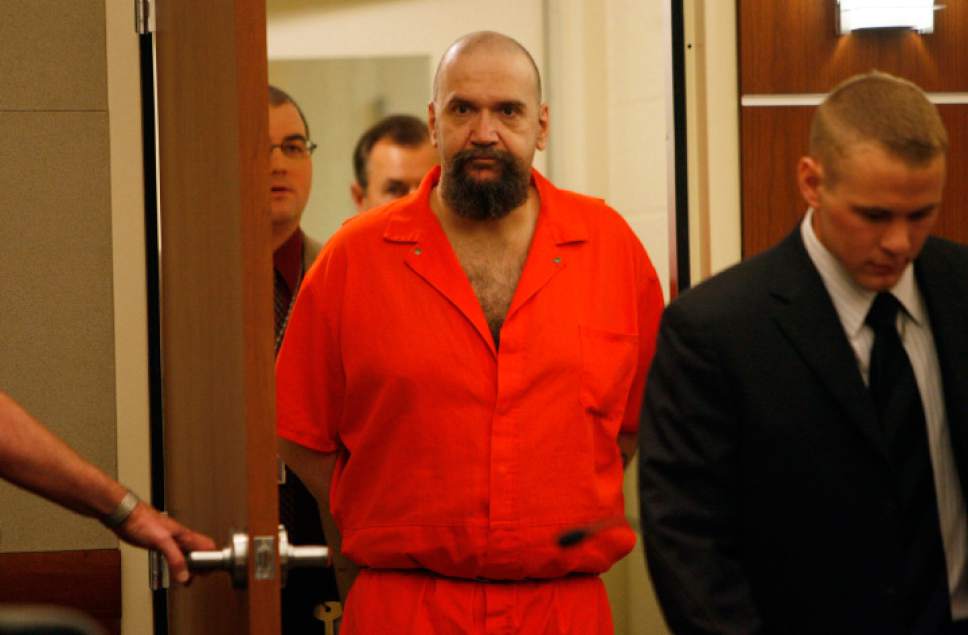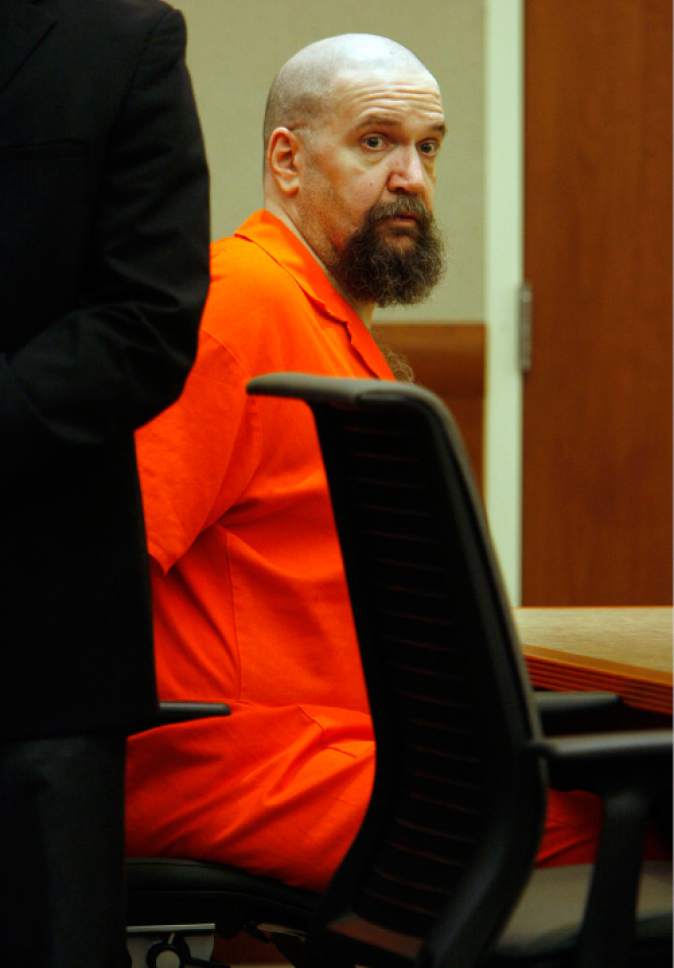This is an archived article that was published on sltrib.com in 2015, and information in the article may be outdated. It is provided only for personal research purposes and may not be reprinted.
Convicted Utah killer Ralph Leroy Menzies is asking the U.S. Supreme Court to consider an appeal of his 30-year-old murder case, claiming the most recent state court rulings wrongly deny him his rights.
An attorney for Menzies filed the petition with the nation's high court on May 7. It asks justices to overturn a September 2014 Utah Supreme Court ruling that found Menzies' multiple claims of ineffective assistance at trial, sentencing and on appeal were unfounded. Utah's court also denied a petition for a rehearing of the case in February.
The petition claims the decision by Utah's highest court appeared to be "result driven" and says justices misapplied the legal standards in finding that Menzies was effectively represented.
"In doing so, the court eliminated [the defense attorneys'] obligation to make informed decisions, and to consult with one's client before deciding on a trial strategy," attorney Theodore Weckel wrote in his petition. "This is a particularly dangerous precedent, given that the case involves a death penalty case."
The petition also asks the high court to consider whether the Utah court's 85-page opinion conflicts with the body of federal appeals court decisions which lay out the constitutional duties of defense attorneys to investigate claims of innocence and pursue a mental health defense when evidence of mental illness exists.
Utah plans to file a response to the petition and has 30 days to do so. On Wednesday, however, Assistant Utah Attorney General Thomas Brunker, who handles death penalty cases, said he had not yet seen the petition and could not comment on its claims.
It wasn't immediately clear whether the U.S. Supreme Court would hear the case. If justices elect to do so and rule in Menzies' favor, the death row inmate could get a new trial or a new sentencing hearing, Weckel said Wednesday.
Menzies, 57, was convicted by a jury in 1988 and sentenced to die for the 1986 kidnapping and slaying of Maurine Hunsaker, a 26-year-old mother of three.
Menzies has maintained his innocence over the years. In all, the Utah Supreme Court has rejected four separate appeals from Menzies, who may remain years from execution as an appeal of the case in Salt Lake City's federal district court also is under way.
In his petition to the U.S. Supreme Court, Weckel argues that Menzies' defense team failed to investigate whether his claims of actual innocence were supported by any facts.
The attorneys — Joan Watt, Francis Palacios and Brooke Wells, who is now a federal magistrate judge — failed to pursue a mental health defense after two psychologists diagnosed Menzies with multiple mental illnesses and said he suffered from organic brain damage.
One psychologist said Menzies may have continued his claim of innocence because he had suffered an "amnestic episode" and could not remember killing Hunsaker.
Weckel claims a mental health defense might have resulted in lesser charges or removed the death penalty as a punishment for Menzies during his trial.
State attorneys have disputed that claim and many of the others raised in the petition in court papers filed throughout the 27 years of Menzies' appeals.
That includes the contention that Menzies' defense team was not trained to conduct mitigation work and failed to begin until after his conviction — one week before sentencing.
In its ruling last year, the Utah Supreme Court said none of those claims had merit.





